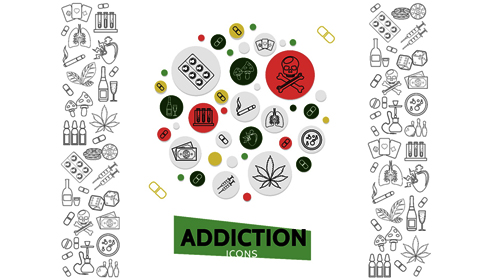
How Rehab Centers Help Individuals Overcome Addiction
The disease of addiction is a complicated one that impacts millions of people all over the world. 20 million Americans over the age of 12 are affected by Substance Use Disorders or SUDs. This condition can be brought on by a wide range of variables, such as genetics, environmental circumstances, or mental health disorders. The good news is that addiction can be treated, and rehabilitation institutions are set up to assist patients in conquering their addiction and regaining control of their lives. Take a look at recoverylifegroup.com to see on how rehabilitation is executed in a wonderful way that gives every patient a sure shot at recovering.
There are methods by which rehabilitation centers assist individuals in overcoming addiction. Topics covered will include the various available treatment choices, the advantages of getting professional help, and the percentage of people who complete addiction therapy.
Understanding Addiction Treatment
The term "treatment" refers to a wide variety of approaches, including treatments and therapies, that are aimed at assisting individuals in overcoming their addiction and enhancing both their physical and emotional health.
The following are some frequent forms of addiction treatment:
Detoxification: Detox is short for "detoxification," which refers to the act of eliminating potentially hazardous toxins from the body. As a result of its ability to assist patients in managing the physical symptoms of withdrawal, it is typically the initial step in the treatment of addiction.
Therapy: Individuals are better able to address the underlying causes of their addiction and build coping skills that allow them to better control cravings and triggers with the support of therapy, which is a critical component of addiction treatment. Numerous approaches can be used to treat mental health issues, such as cognitive behavioral therapy, family therapy, and group therapy.
Medication: Medication may be used in conjunction with therapy to manage the symptoms of withdrawal and diminish the desire to use. Methadone, buprenorphine, and naltrexone are just a few of the drugs that are typically utilized in the treatment of addiction.
Benefits of Seeking Professional Help
The chances of a person conquering addiction and remaining sober over the long term are significantly improved when they receive professional treatment at a rehabilitation facility.
Some of the most important advantages of getting professional assistance are as follows:
A safe and supportive environment: Rehab centers offer patients a safe and supportive atmosphere in which they can concentrate on their recovery without the interruptions and pressures that are typical of day-to-day life.
Access to medical and mental health professionals: Rehab clinics have teams of medical and mental health professionals that can provide specialized care to patients to assist them in managing the physiological and psychological impacts of addiction.
Treatment plans that are tailor-made: Rehab clinics devise treatment programs that are tailor-made for each patient, taking into account their specific requirements and life circumstances. By using this method, patients are certain to receive the appropriate care and assistance necessary to beat their addiction.
Success Rates of Addiction Treatment
The likelihood of an individual's addiction therapy being successful is contingent on several variables, including the nature of the addiction, the degree to which it has progressed, and the individual's level of motivation to get sober. As an alcoholic, your health becomes weak to your destructive habits and deteriorates daily. On the other hand, studies have indicated that addiction therapy is a great option that will help individuals overcome their addiction and become sober over the long term.
For instance, a study that was published in the Journal of Substance Abuse Treatment discovered that people who successfully finished addiction treatment had a likelihood of staying sober one year later that ranged from 40 to 60 percent. Another study that was published in the Journal of the American Medical Association indicated that patients who got methadone maintenance therapy had a reduction of 75% in their use of illegal drugs and a reduction of 37% in their involvement in criminal activities.
Addiction is a terrible disease that involves a lot of complexity, but it can be treated. Rehabilitation facilities provide patients with a variety of treatments and therapies that are intended to assist them in overcoming addiction and regaining control of their lives. When individuals seek professional assistance, they have the opportunity to receive benefits such as a secure and encouraging atmosphere, access to medical and mental health professionals, and individualized treatment plans. Research has demonstrated that addiction therapy has the potential to be quite helpful in assisting patients to stay sober for the long term, even though success rates may vary.
Image Source : Imagesource